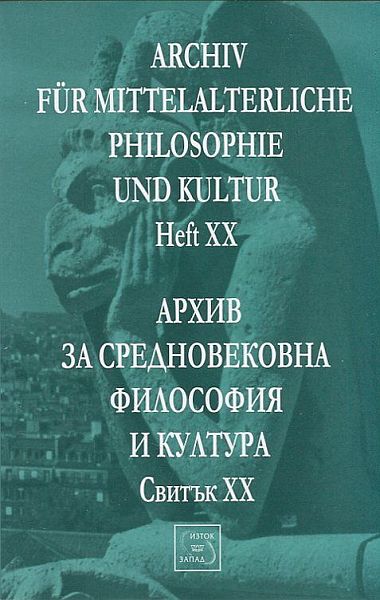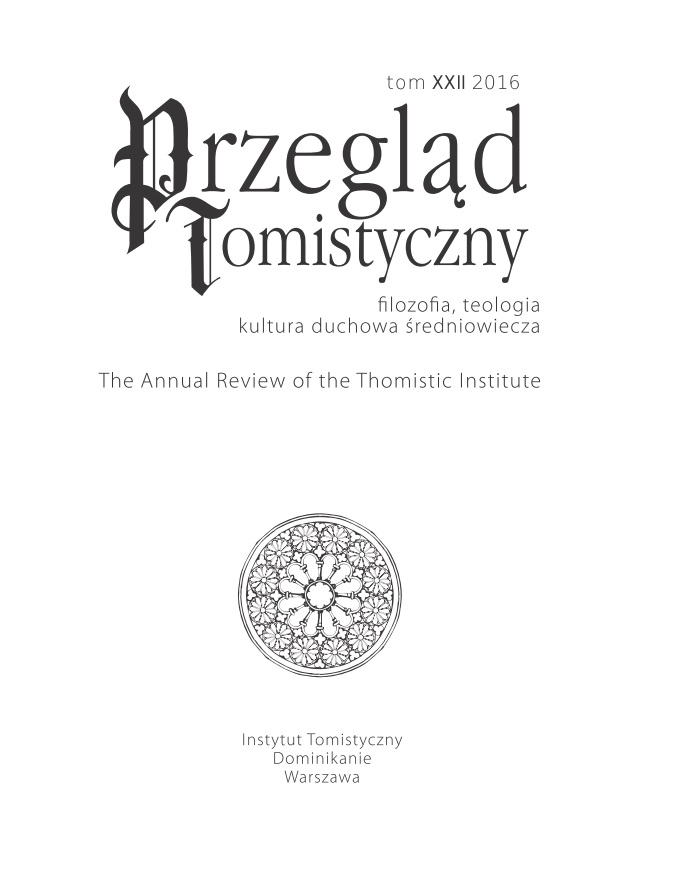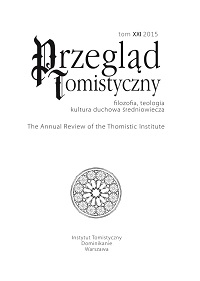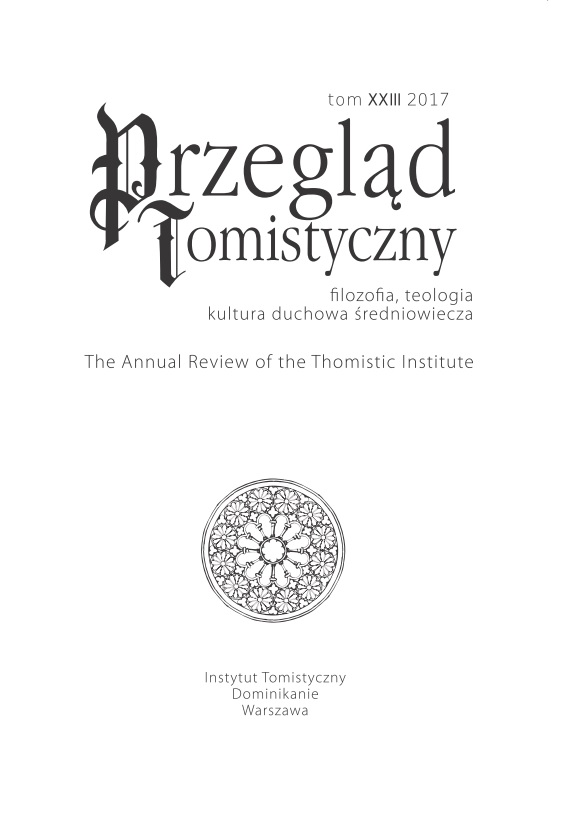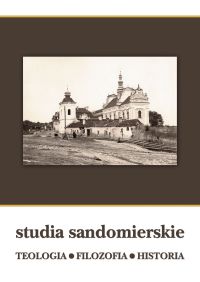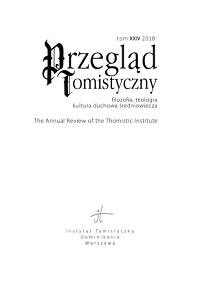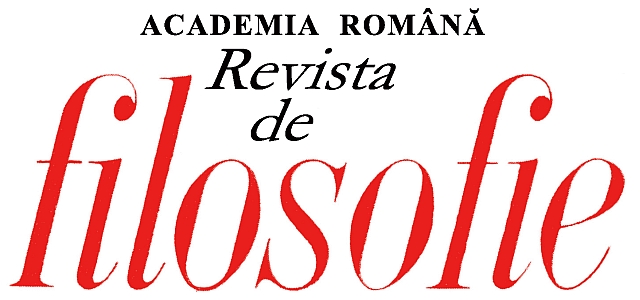Author(s): Mirosław Twardowski / Language(s): Polish
Issue: 1/2017
Dla św. Tomasza z Akwinu celowość, jako istotny element w wyjaśnianiu świata, obejmuje całą przyrodę, zarówno nieożywioną, jak i ożywioną, w tym byty rozumne. Widoczna jest ona w aktywności bytów fizycznych, które działają w taki sposób, aby osiągnąć to, co jest dla nich najlepsze. Tak rozumiana celowość wyklucza przypadek i jest argumentem wskazującym na istnienie Boga. Kazimierz Kłósak dostrzega konieczność reinterpretacji piątej drogi św. Tomasza, w punkcie wyjścia kładąc nacisk na porządek występujący w świecie bytów ożywionych, a nie na celowość. Według Christopha Schönborna wnikliwa obserwacja wszechświata, Ziemi, życia dostarcza nam „przytłacza-jących dowodów” na istnienie porządku, planu i celu. Przestrzega jednak przed zbyt po-chopnymi próbami doszukiwania się wszędzie „inteligentnego projektu”. Richard Dawkins przekonuje, że silne złudzenie, że świat został zaprojektowany lub stworzony w jakimś celu, da się łatwo wytłumaczyć jako skutki działania darwinowskiego doboru naturalnego i mutacji. Francisco J. Ayala twierdzi, że nie ma sprzeczności między mechanizmami ewo-lucji a działaniem Boga Stwórcy. Ewolucję postrzega on jako naturalny proces, za pomo-cą którego Bóg stworzył istoty żywe, a także rozwinął je zgodnie ze swoim planem. Paul Davies, choć nie uważa, że wszystkie bez wyjątku złożone układy stanowią wynik koń-cowy naturalnych procesów, podkreśla jednak, że należy zachować ostrożność w wycią-ganiu jednoznacznego wniosku o istnieniu projektodawcy na podstawie powierzchownych obserwacji. Dla Roberta Jamesa Berry logiczne i naukowo poprawne jest komplementarne podejście do zagadnienia przyczynowości: naturalistyczne i teistyczne. John C. Polkin-ghorne podkreśla, że Bóg pozostaje ze światem w nieustannej interakcji, chociaż nie inter-weniuje doraźnie w zachodzące w nim procesy. Wreszcie, według Michała Hellera, Bóg stwarzając świat, „określił strategię wkomponowywania przypadków w działanie praw przyrody”.
More...
